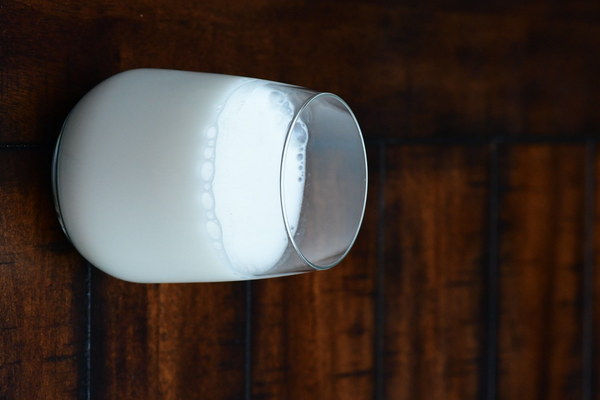Revitalize Your Lungs A Guide to Traditional Chinese Medicines for Elderly Lung Health
In the realm of traditional Chinese medicine (TCM), the health and vitality of the lungs are of paramount importance. As the respiratory organ, the lungs play a critical role in the body's overall well-being. For elderly individuals, maintaining lung health becomes even more crucial, as age-related conditions can compromise their respiratory function. This article delves into the world of TCM and highlights some of the most effective Chinese herbal medicines designed to nourish and strengthen the lungs in the elderly.
Understanding Lung Health in the Elderly
As people age, their lungs can become more susceptible to various respiratory issues, such as chronic obstructive pulmonary disease (COPD), asthma, and pneumonia. These conditions can significantly impact their quality of life, making it essential to address any underlying issues and promote lung health through natural means.
Traditional Chinese Medicines for Elderly Lung Health
1. Fang Feng San (Siler Powder)
- Composition: Siler root, licorice root, and other herbs.
- Benefits: Fang Feng San is known for its anti-inflammatory and expectorant properties. It helps to alleviate respiratory congestion, reduce coughing, and improve lung function.
- Dosage: Consult with a TCM practitioner for personalized advice.
2. Xiao Chai Hu Tang (Minor Bupleurum Decoction)
- Composition: Bupleurum, scutellaria, and other herbs.
- Benefits: Xiao Chai Hu Tang is a popular formula for treating stress-related respiratory issues, such as bronchitis and asthma. It helps to balance the body's Yin and Yang, promoting overall lung health.
- Dosage: Follow the dosage prescribed by a TCM practitioner.
3. Yu Ping Feng San (Yu Ping Feng Powder)
- Composition: Astragalus root, forsythia fruit, and other herbs.
- Benefits: Yu Ping Feng San is an immune-boosting formula that strengthens the body's defense against respiratory infections. It also helps to alleviate fatigue and improve lung function.
- Dosage: Consult with a TCM practitioner for personalized advice.
4. Gan Mai San (Gan Mai Powder)
- Composition: Licorice root, schisandra fruit, and other herbs.
- Benefits: Gan Mai San is a calming and nourishing formula that helps to alleviate stress and anxiety, which can exacerbate respiratory symptoms. It also supports lung function and promotes overall well-being.
- Dosage: Follow the dosage prescribed by a TCM practitioner.
5. Er Chen Tang (Two Cinnamon Decoction)
- Composition: Cinnamon bark, atractylodes, and other herbs.
- Benefits: Er Chen Tang is a warming formula that helps to expel cold and dampness from the lungs, alleviating symptoms such as cough, phlegm, and shortness of breath. It is particularly beneficial for elderly individuals with chronic respiratory conditions.
- Dosage: Follow the dosage prescribed by a TCM practitioner.
How to Incorporate TCM into Your Elderly Care Plan
When considering traditional Chinese medicines for elderly lung health, it is crucial to consult with a qualified TCM practitioner. They can provide personalized advice and create a treatment plan tailored to your loved one's specific needs.
Here are some tips for incorporating TCM into your elderly care plan:
- Regular Consultations: Schedule regular appointments with a TCM practitioner to monitor your loved one's progress and adjust the treatment plan as needed.

- Complementary Therapies: Combine TCM with other complementary therapies, such as acupuncture, to enhance the effectiveness of the treatment.
- Lifestyle Changes: Encourage your loved one to adopt a healthy lifestyle, including regular exercise, a balanced diet, and adequate rest.
- Mind-Body Practices: Encourage the practice of mind-body techniques, such as tai chi and qigong, to improve lung function and overall well-being.
By incorporating these traditional Chinese medicines and practices into your elderly care plan, you can help promote lung health and improve your loved one's quality of life. Remember, the key to successful TCM treatment lies in personalized care and adherence to the practitioner's recommendations.









